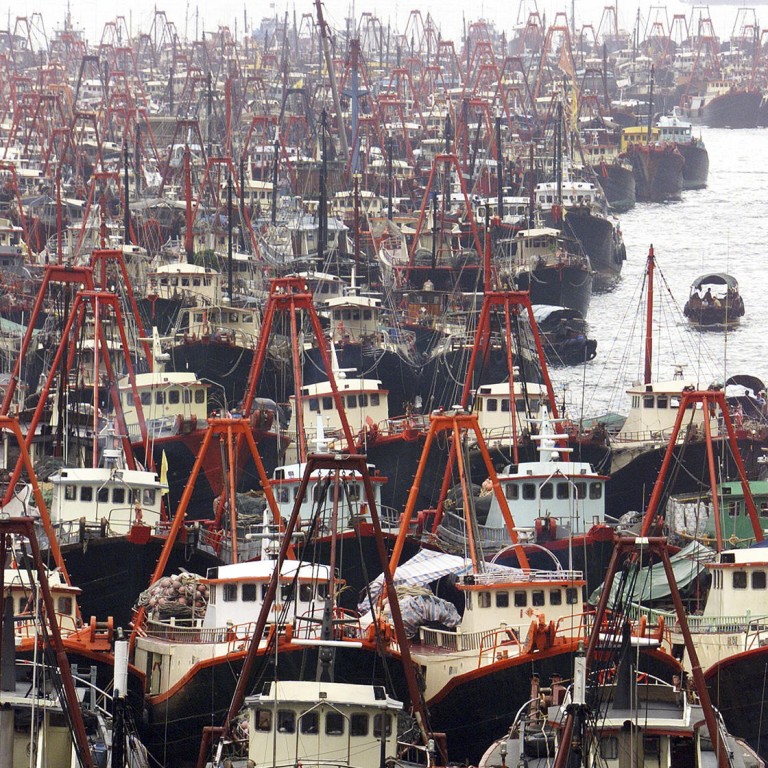
Fishy business: Hong Kong fishermen and conservationists urge crackdown on illegal trawling
Local green groups claim efforts to enforce ban are lax, legitimate fishermen are losing out and a new measure could imperil marine life
Regular illegal trawling in Hong Kong's waters is being ignored and mishandled by law enforcement agencies, local conservationists say, damaging the livelihoods of legitimate fishermen.
Authorities are considering deploying controversial physical devices to crack down on the practice, although environmentalists say these could cause more problems and that stricter enforcement is a better solution.
Trawling is an environmentally harmful fishing practice in which a large net is dragged behind one's boat, catching all marine wildlife whether it is financially useful or not. It was banned in Hong Kong from January 2013.
A spokeswoman for the marine police said they were working closely with the Agriculture, Fisheries and Conservation Department to enforce the ban.
DON'T MISS: Slavery at sea: human trafficking in the fishing industry exposed
The government has spent HK$1.7 billion to compensate the local fishing industry, including buying back licenses and easing the switch to sustainable fishing.
But local conservationists said officials' attempts to stop the practice are undermined by poor enforcement by police and the legal system, as small fines fail to deter illegal fishing.
Gary Stokes, director for Asia of marine wildlife group Sea Shepherd Conservation Society, said while he had the utmost respect for the marine police, he had seen illegal trawlers freely working next to police boats.
"My only explanation is that they are likely watching for something else completely. The department has boats out in the water … however, they are sadly impotent and need to call marine police for assistance," he said.
Stokes said the attitudes of police and judiciary, who impose only small fines and short sentences, were sending the wrong message to poachers.
"It also sends a message from the department and police of 'why bother with all that hassle and paperwork?' [An illegal trawler] gets a HK$4,000 fine and he's back fishing again," he said.

As of March, there had been 25 successful prosecutions for illegal trawling, which led to some individuals being imprisoned for up to a month.
According to the department, it received 111 complaints of illegal trawling since the ban was introduced in 2013.
In a new effort to crack down on the practice, concrete blocks with protruding edges could be dropped into Hong Kong's waters to try to stop fishing boats from trawling.
"Spain, Italy and Malaysia have been using reinforced concrete blocks … to stop trawling activities," resulting in a fall in the number of trawlers, a department spokesman said.
But Stokes said the measures could hurt marine wildlife, as abandoned nets caught on the blocks can indiscriminately kill fish. He said the government should just strengthen its patrols.
Samantha Lee, assistant conservation manager in Hong Kong of environmental group WWF, also said the government should focus on enforcement. Local fishermen tell her illegal trawling is making their lives hard.
"Some fishermen said that, since the trawling ban, fishing has started to recover, but recently they go out and can't catch anything," she said. "They think the area is trawled overnight."
Lee said the government needed to seriously curtail illegal fishing in the region and do more patrols to catch perpetrators.
"The fishermen are disappointed," she said. "Since the trawling ban, the government hasn't increased its resources for police patrolling."
A marine police spokeswoman said they worked closely with the department to stop illegal trawling and enforce the ban.
"Anti-illegal fishing operations have been carried out jointly with the [department] on a monthly basis," she said. "Marine police have procured a vessel arrest system that can effectively intercept non-compliant trawlers."

